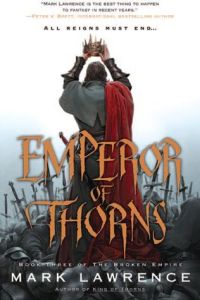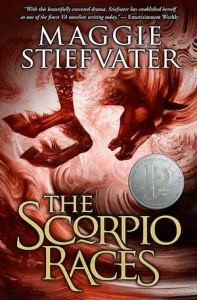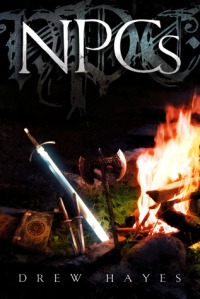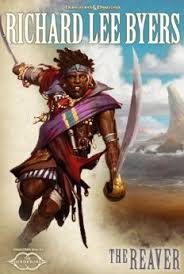So here we are, after one year of reviews and Reading the lists of the top books of the years have started appearing all around and, since my first post was the top five books of 2013 (all of them amazing, read them right now), with the top five books of 2014 I celebrate a year on Thelordbaelish’s blog, again, thank you for taking the time to read my posts and thank you for the follows, the likes and the favorites.
Well, Time to get down to business! This year has been filled with wonderful books and deciding which ones were the best books of the year hasn’t been easy. Several times I have been tempted to make a top 8 instead of a top 5, but these lists’ aim is to choose a few books among many, so sacrifices must be made!
So, with a Spanish beer on my hand, a hat in my head to I can take it off to honor the writers in this list and my mouth stuffed with Christmas pastries (you have to try the Spanish ones [of course you would say that (shut up)])I present you 2014’s Top Five Books for Thelordbaelish blog!
5) The Left Hand of Darkness by Ursula K. LeGuinn
This position has been the toughest to decide, but, after much thought, I think The Left Hand of Darkness deserves to be named one of the greatest books I have read this year.
Ursula K. LeGuinn brings us the story of First Contact completely reversed. A human diplomat named Ai is sent by an intergalactic alliance to convince the inhabitants of the frozen planet Gethen to join after they have been deemed prepared to do so. What Ai can’t suspect is that this action will destroy the fragile political balance between Gethen’s most powerful nations, endangering both himself and every potential ally he may find.
The Left Hand of Darkness is an impressive, dark and well written political thriller which takes place in an unknown world, filled with wonders and with cultures so well created and developed that you will feel as if you were reading history rather than science fiction. As the story advances, we witness how these cultures change and become more radical in a wonderful cause-effect scenario, always answering to the stimuli provided by Ai’s presence, which creates a dynamic world subjected to constant change. By the end the reader will have witnessed several allusions to our own 20th century political situation: from the rise and fall of a radical, race-centered movement similar to Nazism to the political development of a nation similar to Stalin’s Russia.
I also enjoyed Ai’s figure, a man bent into doing the right thing even when he knows that it may have tragic consequences for himself and those who defend him, but I admit that I personally would have preferred for him to have a bigger internal conflict. Though it is true that he spends the novel trying to decide who can be trusted, it may have been interesting to see a darker side of his personality, or at least to see some preoccupation about his own well-being beyond the need to complete his mission.
If you enjoy political science fiction, vivid, beautiful and ever-changing worlds and well-written books, then The Left Hand of Darkness is the book for you.
4) The Postmortal by Drew Magary
I feel that the idea Immortality and what it may entail for the human race is a subject which can produce really interesting debates just as long as it is not discussed in YouTube (seriously, when I am feeling adventurous I read YouTube comments and by the end I always feel that 90% of them are written by crack addict monkeys having a particularly bad day). How would it affect us? Would we be able to function as a productive society or would we sink into utter chaos? Drew Magary offers his own thoughts on this debate and the image he creates is not a pretty one.
The story takes place over 73 years, in which we witness the utter self-destruction of the human race from the point of view of John Farrell, a divorce lawyer whose life is changed forever from the moment he decides to become immortal. John Farrell will try to survive and find meaning to his life in a society without morals, ambition, decorum and, finally, without resources.
Let me tell you now, The Postmortal may be a tragic and depressing story, but it is also a deeply satisfying one due to its great quality and the amazing character work, which makes John Farrell vividly human, a character in whom the reader can see himself and with whom we feel connected.
The Postmortal is, at its core, a tale about humanity, and an intensely fatalistic one, at that. But it also shows us really beautiful moments which give us hope and provide some lights in the great ocean of darkness which is The Postmortal’s society.
If you enjoy dystopian societies, fatalistic futures or original apocalyptic stories, then The Postmortals is the book for you. A book which does not only entertain, but also gives the reader something to think about
3) Emperor of Thorns by Mark Lawrence
You know a book is good when you read it on January and in December you still considering it one of the best books of the year. It can also be due to a bad reading year, but since that is not the case, we are going to agree that Emperor of Thorns is an amazing book filled with unforgettable characters and spectacular moments. Of course it is not only the story, but also the writer, Mark Lawrence has managed to be on this list for two years in a row (Prince of Thorns, the first installment to the trilogy, was one of my favorite books for 2013), and he has done it through his intelligent, sometimes witty, dialogue, his beautiful world and his great writing style
Emperor of Thorns offers closure to the Broken Empire trilogy and to Jorg’s story, and it does it masterfully, staying loyal to its main character without trying to make him more sympathetic or a better person. Jorg is still a complete bastard, a horrible human being who is one step away from being considered a psychopath (or maybe he is one by this point, not quite sure) and who sees almost everyone else as pieces to be played with to protect those he loves and to reach the throne.
The secondary characters are not much better, from his wife, a plotting young woman who could go toe-to-toe against Lady Macbeth in ruthlessness, to his men at arms. The book soon becomes a mix of complex, unpredictable characters that play to fulfill their own goals and ambitions.
The Broken Empire trilogy has been an amazing treat, a dark and thrilling tale which has given me hours of enjoyment, a vivid proof that the Eragon’s effect doesn’t always apply to book sagas with great first books.
I would recommend Emperor of Thorns, and the Broken Empire trilogy as a whole, to anyone who enjoys an original dark fantasy saga set in an enormous and dynamic world filled by possibilities and unpredictability.
2) The Thousand Names by Django Wexler
As I said when I was reviewing this book, I love it whenever I find a strong female protagonist capable of staying away from overused clichés and who doesn’t need a man in her direst hours. Female characters and fiction have had a complicated relationship, and usually we find the so-called Trinity Syndrome, strong female protagonists who end up helplessly depending on the male hero in the final part of the story. Therefore, it was a great surprise when I read The Thousand Names and found that not only it has a strong female character, but she also keeps her strength throughout the novel.
The Thousand Names is a tale of survival set on a colonist-like period in a fantasy world. Trapped on the middle of a religious uprising, the imperial army stationed in a faraway colony tries to stay alive by any means necessary while the wait for the ships which will get them home. To their surprise, they are not to abandon the colony, but try to retake it following their new commander in chief, the mysterious and eccentric coronel Janus. By his side, Janus will have Captain D’Ivory, a man struggling with his own sense of self-worth, and private Winter, a girl posing as a man who would rather not being noticed.
The author manages to create a set of unpredictable, likeable characters and an entertaining and carefully-built world which offers a realistic reflection on our own colonial period. All of it while managing to develop one of the most enthralling stories I have read this year. The Thousand Names is a book I could read over and over again without getting tired of it, a book I recommend to anybody who enjoys a good fantasy story.
1) The Wise Man’s Fear by Patrick Rothfuss
This year has been filled by marvelous books and unforgettable stories, but sadly only one can be considered the Top 1 book of the year. That honor belongs to Patrick Rothfuss’ The Wise Man’s Fear.
An amazing tale of adventure, worthy of classical heroes such as Conan or the Company of the Ring, The Wise Man’s Fear continues the story of Kvothe as he remembers the incredible adventures which led to his tragic and mysterious downfall.
Patrick Rothfuss has managed to create a breath-taking world which will entrap the reader because of its enormity and the detail by which it has been created. Once you put down the book, you feel as if you had just contemplated the work of a master craftman, who has managed to pour life into an inanimate object, transforming it in a spectacular work of fiction filled with humane characters and magical situations.
As I said while reviewing this book several months ago, The Wise Man’s Fear is an ambitious tale which will provide any reader with hours of enjoyment, whether they usually read fantasy or not. If you are looking for a book to start 2015 on a high note, look no further: This is it.
So, those are, in my opinion, the best five books I have read on 2014, but I do not want to finish my post without three honorary mentions to the runner-ups which didn’t make it: The Scorpio Races, Steelheart and One Second After.
Now all that is left is wishing you a Happy New Year and I shall see you on 2015
¡Hasta la próxima!
















